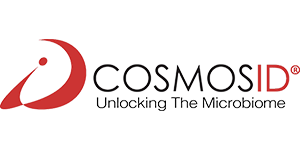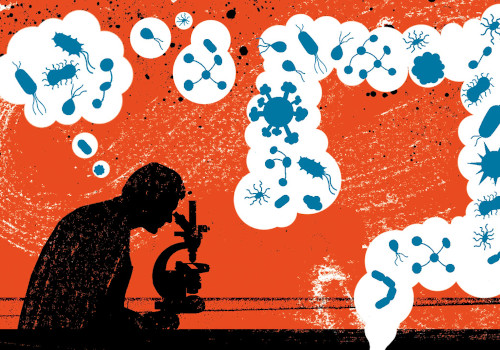Biography
Prior to CosmosID, Mr. Dadlani served as a partner at Applied Value Group, a management consulting and investment firm, and was co-founder and CEO at Rasa Industries, Ltd., a leading beverage manufacturing company. Mr. Dadlani has substantial experience in strategy, M&A, supply chain management, product development, marketing and business development. Mr. Dadlani received his Bachelor’s and Master’s degrees in Biological Engineering from Cornell University. Services offered by CosmosID’s CLIA and GLP certified laboratory cover the entire workflow from study design to sample collection, extraction, library preparation, sequencing, data analysis and publication support. CosmosID’s cloud-based metagenomics application offers user-friendly access to the largest curated databases for microbial genomics, antimicrobial resistance and virulence data and has been independently validated to return metagenomic analyses at strain level resolution with industry-leading sensitivity and precision.
Session Abstract – PMWC 2020 Silicon Valley
Understanding mechanism of action and translating microbiome science into commercially viable therapeutics remains the biggest challenge in this emerging field. With that said, pharma and biotech across many different therapeutic indications and modalities are united in this global effort to bring novel microbiome-based therapies and diagnostics into the clinical domain. This session will include some of the most impactful and promising areas of the microbiome field:
- Fecal Microbiota Transplantation (FMT)
To date, FMT, or the transfer of donor feces containing gut microbiota from a healthy individual to restore microbial diversity in patients, has been used for the treatment of patients with chronic gastrointestinal infections and inflammatory bowel diseases. Now there is great interest in its therapeutic potential for other applications. This session will explore the use of FMT for IBD, IBS, metabolic syndrome, neurodevelopmental disorders, and autoimmune diseases, among others.
- Tor Savidge, Baylor College of Medicine - Microbiome Profiling through “Omics” Methods
Advances in sequencing and analysis tools have provided unprecedented insight and resolution into the microbiome and is enabling researchers and clinicians to monitor shifts in the microbiome-- from taxonomic profiling to metabolomics and proteomics. This session will uncover some of the latest and most advanced tools for microbiome analysis and where the current trends are taking the industry next.
- Sandrine M. Miller-Montgomery, UCSD
- Manoj Dadlani, COSMOSID
- Martha Carlin, The BioCollective
- Aaron Del Duca, DayTwo
- Brian Keppler, Metabolon
- Morten Isaksen, Bio-Me AS
- Dan Knights, CoreBiome
- Sanjay Joshi, Dell EMC - The Skin Microbiome
Human skin is populated by diverse bacteria and there is increasing evidence that resident bacteria play a key role initiating immune responses in numerous diseases. This session will look at techniques to modulate the skin microbiome composition as a therapeutic option in diseases affecting the skin such as psoriasis and acne vulgaris.
- Mark S. Wilson, MatriSys Bioscience
- Larry Weiss, Persona Biome, Inc. - Microbiome And Metabolic Disorders
Advances in microbiome research are spurring the development of new therapeutics for a variety of diseases. This session will explore recent discoveries in gut microbiome interventions for promoting human health and combating disease. These approaches include microbiome modulation or direct impact on the host through nutritional intervention, either by prebiotics or by individualized diets.
- Colleen Cutcliffe, Pendulum Therapeutics - Gastroenterology & the Microbiome
This session will take the perspective of the clinician, as the microbiome approaches the clinic and will focus on how novel microbiome science can be communicated to classically trained gastroenterologists and other clinicians, in order to prepare them to bring these practices to patients.
- Haroldo Magarinos, BioVital Health - Pre-Clinical & Clinical Development
A new and exciting aspect of mirobiome research focuses on personalization of interventions, as well as harnessing the inherent individualized variability in microbiomes and other physiological features. This session will aim to provide insight into best practices and the pitfalls to avoid.
- Mary Conrad, Axial Therapeutics
- Jackie Papkoff, Assembly Biosciences
- Nikole Kimes, Siolta Therapeutics









